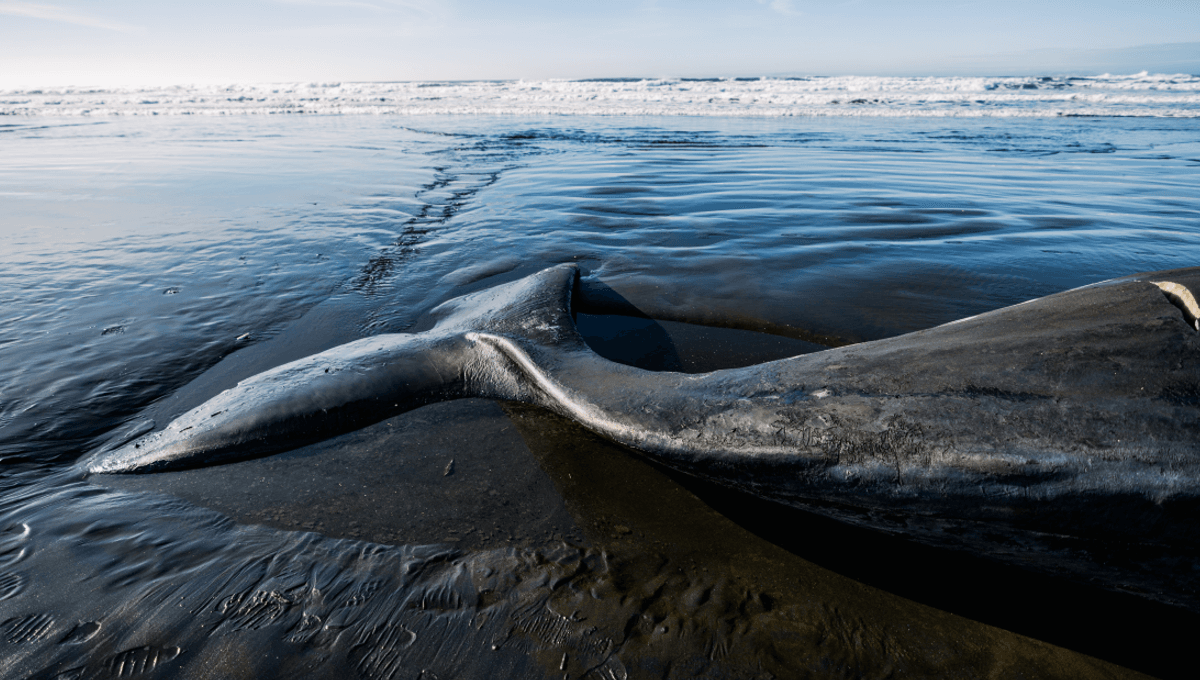
Picture the scene: you’re out walking when an almighty smell catches your attention. A whale has died and washed ashore. Do you:
- Cut its head off, I’m not one to turn down a knick-knack
- Leave it be, nature’s best left well alone
- Consult the internet: am I allowed to keep dead animals?
It’s an interesting question that’s come to – ahem – a head in recent times as it’s been reported that Robert F. Kennedy Jr. is being investigated for allegedly keeping some dead whale. According to NBC News, the act was brought to light by a 2012 article in which his daughter Kathleen Kennedy spoke of how they’d tied it to the family car with bungee cables, and RFK Jr. isn’t impressed by the response.
“I received a letter from the National Marine Fisheries Institute saying that they were investigating me for collecting a whale specimen 20 years ago,” he said during a campaign event for former President Donald Trump. “This is all about the weaponization of our government against political opponents.”
Political director for the Center for Biological Diversity Action Fund (CBDAF) Brett Hartl called out the former independent presidential candidate for thinking “that his name and privilege mean the rules don’t apply,” but what are those rules, exactly?
Can you keep dead animals you find?
According to the CBDAF, both the Marine Mammal Protection Act and the Endangered Species Act make it illegal to keep dead animals protected under either law. That would include the whale head Kennedy is said to have strapped to the family car back in 1994. A decision that, as Hartl put it, is strange whatever way you slice it.
“RFK Jr. cutting off the head of a dead whale was both bizarre and illegal, and any serious environmental attorney would know better,” Hartl said. “If he had a shred of integrity left he’d surrender this whale skull and any other illegally collected wildlife parts to the authorities. If he doesn’t, NOAA law enforcement should open an investigation and potentially bring charges against him.”
Kennedy, it seems, has previous when it comes to the improper disposal of animal carcasses. He recently went public with the admission that 10 years ago he took a bear cub carcass from a road with the intention of skinning it, but instead dumped the bear in Central Park.
Beyond protected species, many wildlife organizations warn against the collection of carcasses as it can accidentally lead to the spread of disease. This is certainly true in the case of deer, whose bodies are a potential threat in places like Virginia due to chronic wasting disease, and there are many other zoonotic diseases you can come into contact with when carving up deceased wildlife.
Indeed, the rules about keeping animal carcasses even extend to their horns, as Colorado Parks and Wildlife asked that people don’t collect fallen antlers. That’s because wandering into areas where these animals are losing their horns means wandering into their territory, something deer don’t need during antler shedding season.
“The purpose of this regulation is to reduce stress on wintering big game animals during the time of year when big game animals such as deer, elk, pronghorn, and moose are most vulnerable,” they said. “Stress can result in decreased body condition, increased mortality, and decreased fawn/calf survival. These regulations protect the health of Colorado’s big game herds and other wintering wildlife.”
So be it the decapitated head of a whale or a deceased bear cub, your best bet is to leave fallen wildlife well alone.
Source Link: Can You Keep Dead Animals You Find? Here’s What The Rules Say